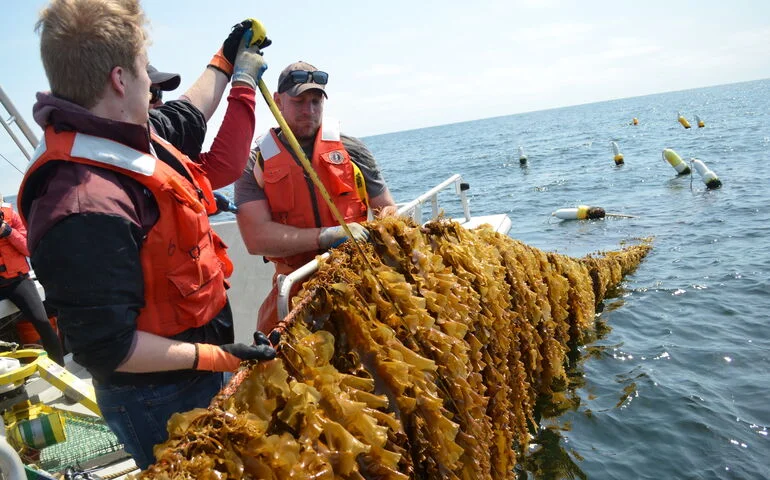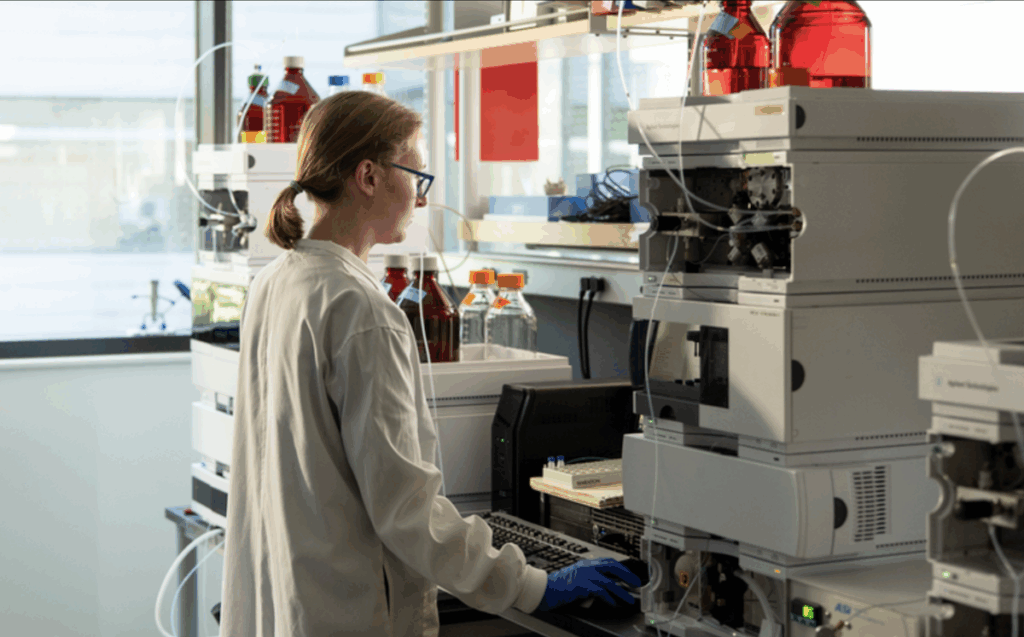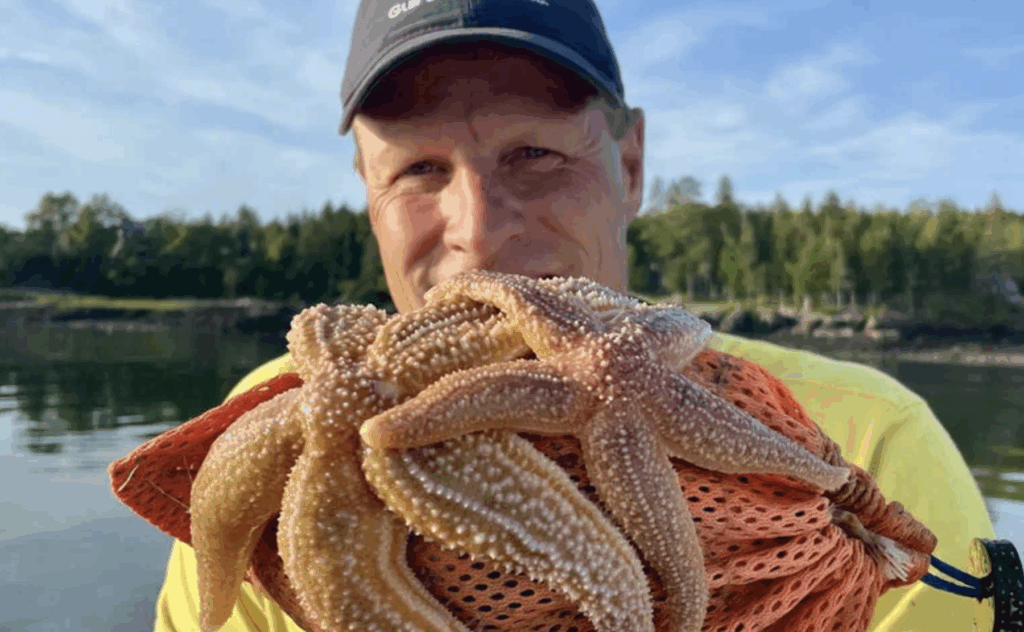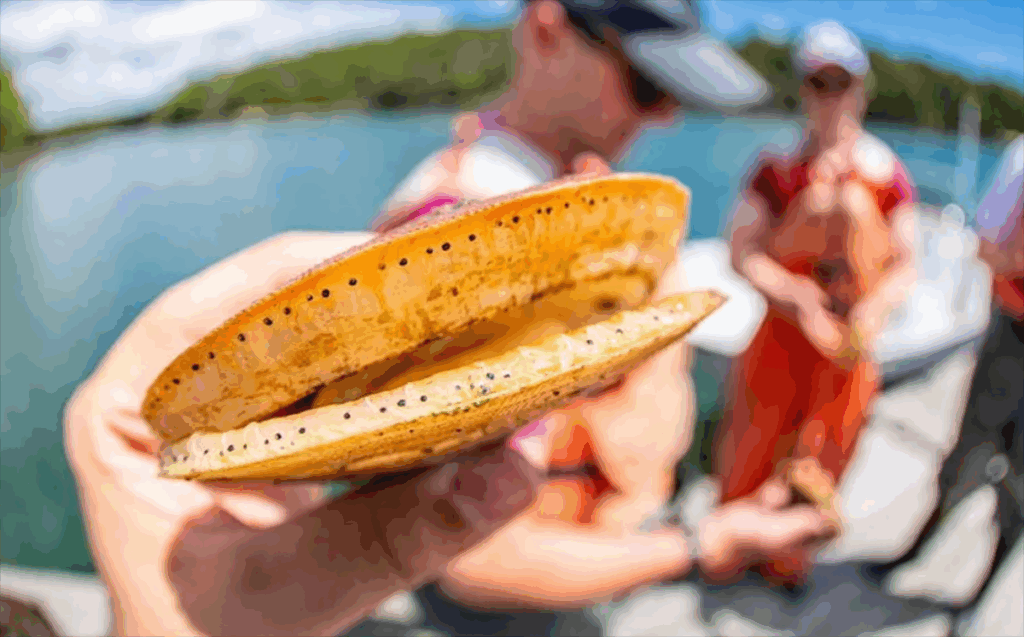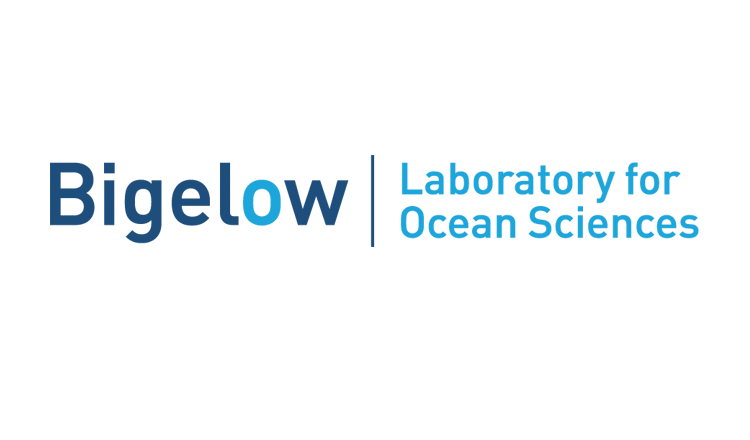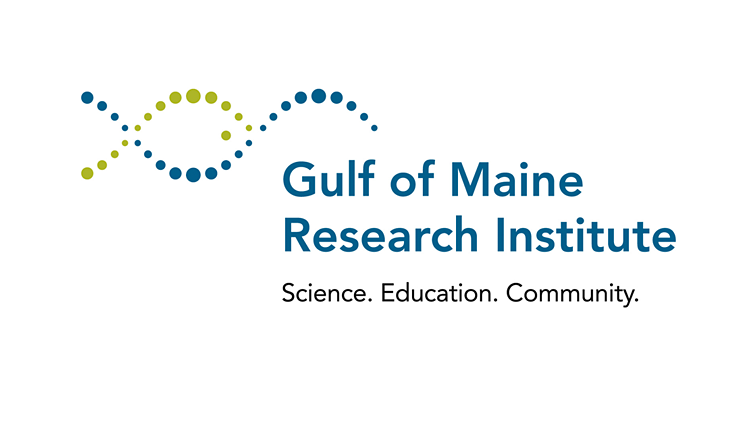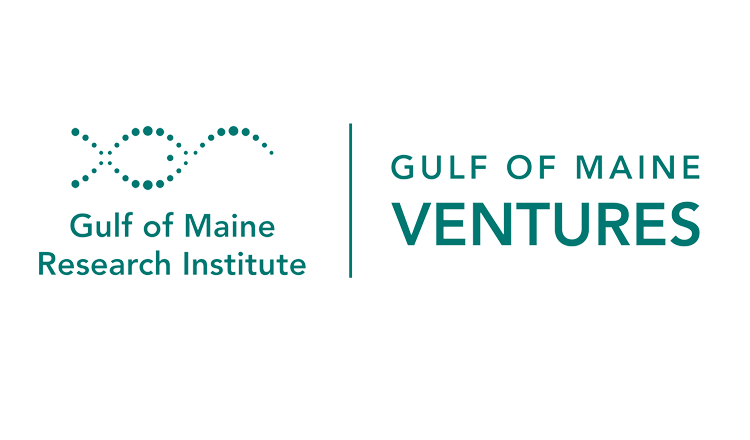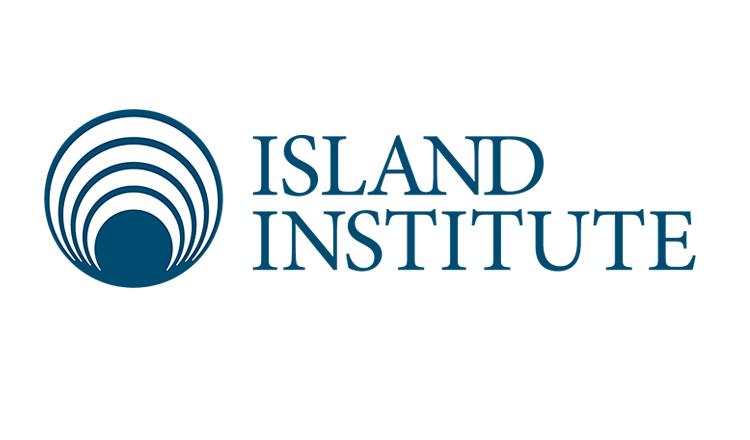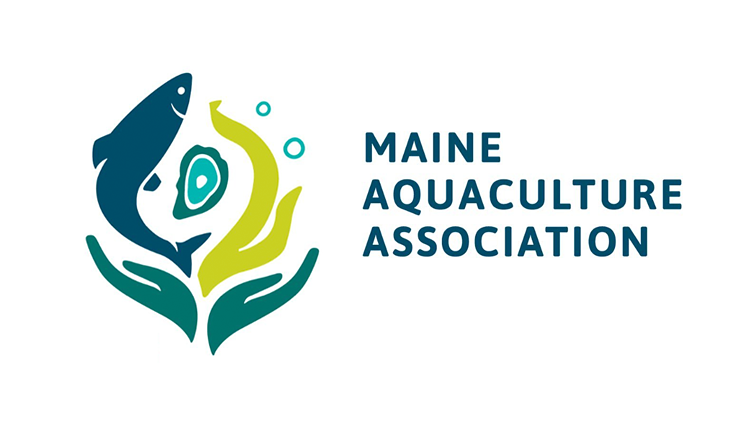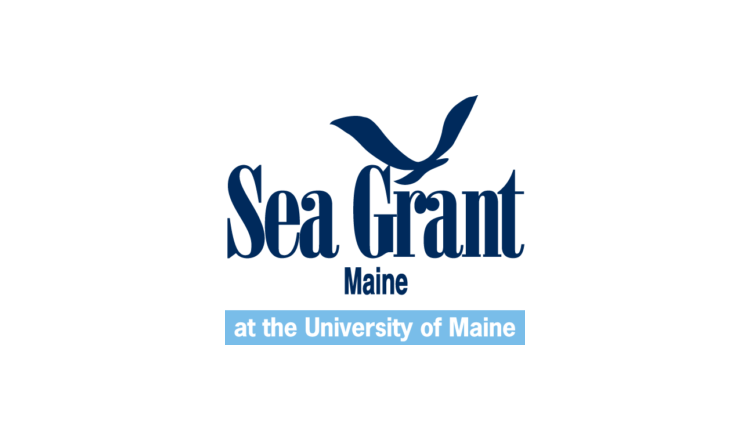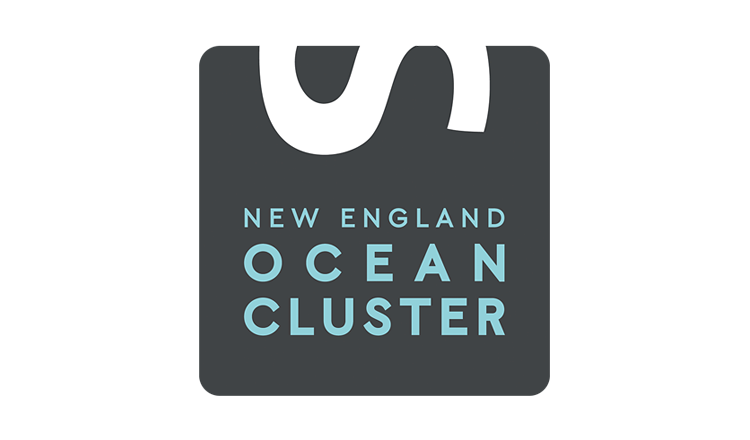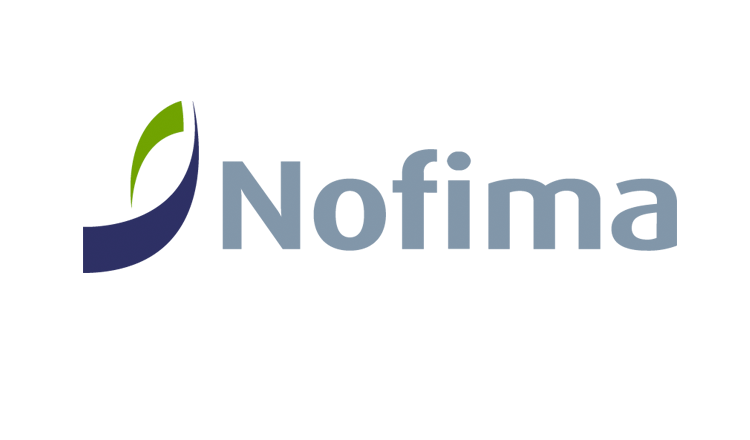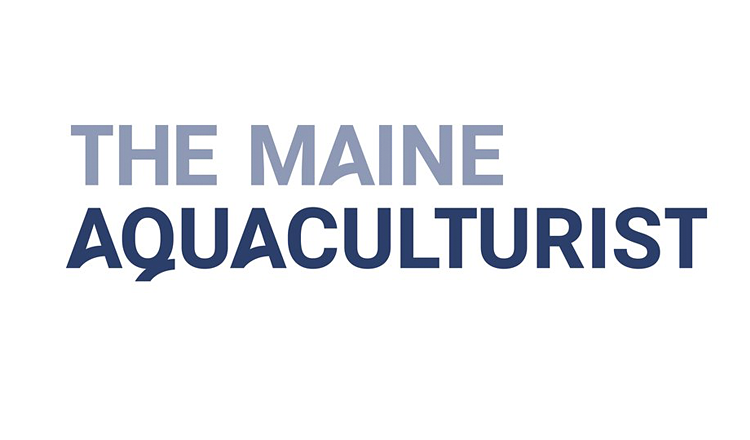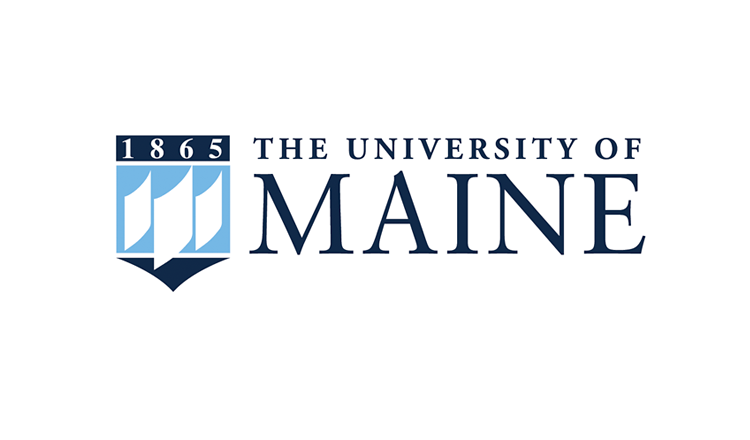Blue Economy
Maine’s blue economy aims to transform waste into revenue and play an important role to address global challenges.
The blue economy is an evolving and innovative industry sector dedicated to improved use of aquatic resources – such as seaweed, algae, and microorganisms – for economic growth. With a focus on sustainability, the blue economy relies on renewable aquatic resources to deliver a wide variety of products including nutraceuticals, pharmaceuticals, biobased materials, and even energy.
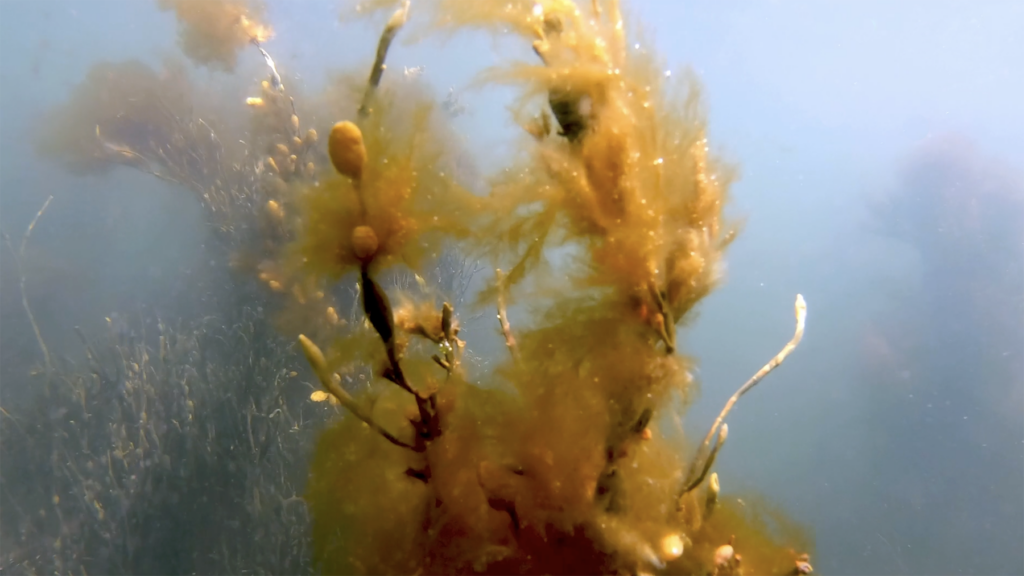
Discovering new ways to utilize all components of aquatic resources and develop higher-value products helps Maine coastal communities create sustainable economic growth and local jobs for future generations.
60% of farmed edible seaweed in the US comes from Maine
Economic impact estimated at $3.2 billion and 33,300 jobs in Maine annually
Maine’s aquaculture exports could be worth $800 million by 2025
Overall, the impact of Maine’s fisheries (or Maine’s Blue Economy) is an estimated $3.2 billion and 33,300 jobs annually.
Maine seaweed production has experienced tremendous growth from 45,000 pounds in 2017 to over 1 million pounds in 2022.
Aquaculture – including farmed fish and shellfish – is the fastest-growing food production method in the world. The Maine aquaculture industry’s revenue is between $85 and $110 million annually. Aquaculture farmers in Maine produce more than 25 diverse species. Topping the list are salmon, oysters, mussels, and kelp.
Blue biotechnology – the intersection of life sciences and the blue economy – is one of the fastest-growing global industries, projected to exceed $10 billion in value globally by 2027.
Farming kelp is an expensive endeavor, in some scenarios costing about $2,618 per metric ton. But a new tool developed in Maine could help trim that cost to $383. Researchers at Kelson Marine Co. and the University of Maine developed software that provides a detailed economic overview for growers.
Kelson has developed simulation tools for engineering complex ocean structures for applications such as ocean renewable energy and aquaculture. The company’s exports in 2024-25 included designing systems for New Zealand, the United Kingdom, Canada, Norway and the Faroe Islands.
Bigelow Laboratory for Ocean Sciences recently launched a program called Blue Biotech Innovation Ecosystem that aims to accelerate the translation of marine science into commercial opportunity. Partnering with Hatch Blue and regional collaborators, the program’s goal is to launch an “innovation studio,” attract investment, and create jobs by leveraging Maine’s experience in life sciences and the blue economy.
The partnership with Hatch Blue brings essential international experience and networks that will accelerate Maine’s development as a global blue biotech hub.
Gulf of Maine Inc., a marine specimen supplier in Washington County, is expanding into international distribution. Through an agreement with VWR International LLC, a distributor of research laboratory products in North America and Europe, Gulf of Maine hopes to double its production levels in the next 12 months, resulting in more hiring in areas such as marine biology and aquaculture in addition to harvesting.
Technology transfer is one of the fastest ways to build, support, and ramp up an industry. The Japanese have been sustainably growing and harvesting scallops for decades and have nearly perfected their grow-out techniques over the past 100 years. The aquaculture of sea scallops in Maine has been developing for about 20 years. As harvest and demand increase, farmed scallops could create further opportunities within the seafood distribution supply chain nationwide.
The Blue Economy Task Force featured over 30 leaders from Maine-based public and private research institutions, businesses, trade organizations, agencies, and nonprofits. The recently released report includes recommendations for how the state can promote and grow blue economy activities that sustainably use ocean resources for both economic and ecosystem health.
A partnership between Gulf of Maine Ventures and The Roux Institute at Northeastern University to drive blue technology innovation, the program focuses on early-stage companies leveraging artificial intelligence (AI) in ocean-based solutions. The first-of-its-kind 16-week accelerator focuses on early-stage companies leveraging artificial intelligence in ocean-based solutions.
Industry Support
Creative, cutting-edge science fusing the best of scientific inquiry and entrepreneurial ingenuity
Interdisciplinary approach combines world-class marine research with robust community and education programming to understand how natural, social, and economic systems interact
Business development and impact investment arm of the Gulf of Maine Research Institute to bridge the gap between innovative, blue economy businesses and the capital, technical
knowledge, and networks needed to help them grow
Works to sustain Maine‘s island and coastal communities and exchanges ideas and experiences to further the sustainability of communities here and elsewhere
Non-profit trade association that represents the Maine aquaculture industry at the state, federal, and international levels
In partnership with University of Maine Cooperative Extension, sponsor scientific research and develop tomorrow’s marine workforce
Private-sector, membership-based entity to connect people within the ocean economy and encourage an innovative and sustainable approach to realizing economic opportunity
Leading food research institute that conducts research and development for the aquaculture, fishing, and food industry sectors
In direct response to a gap in industry support identified by aquaculture business owners, a space for Maine’s thriving aquaculture community to share, learn, and grow with each other
The University of Maine plays a pivotal role in fostering the growth of Maine’s Blue Economy by aligning education, research, and industry needs to help Maine achieve global leadership
International Investors
We’d love to hear from you to discuss your interest in this sector and Maine’s advantages.

